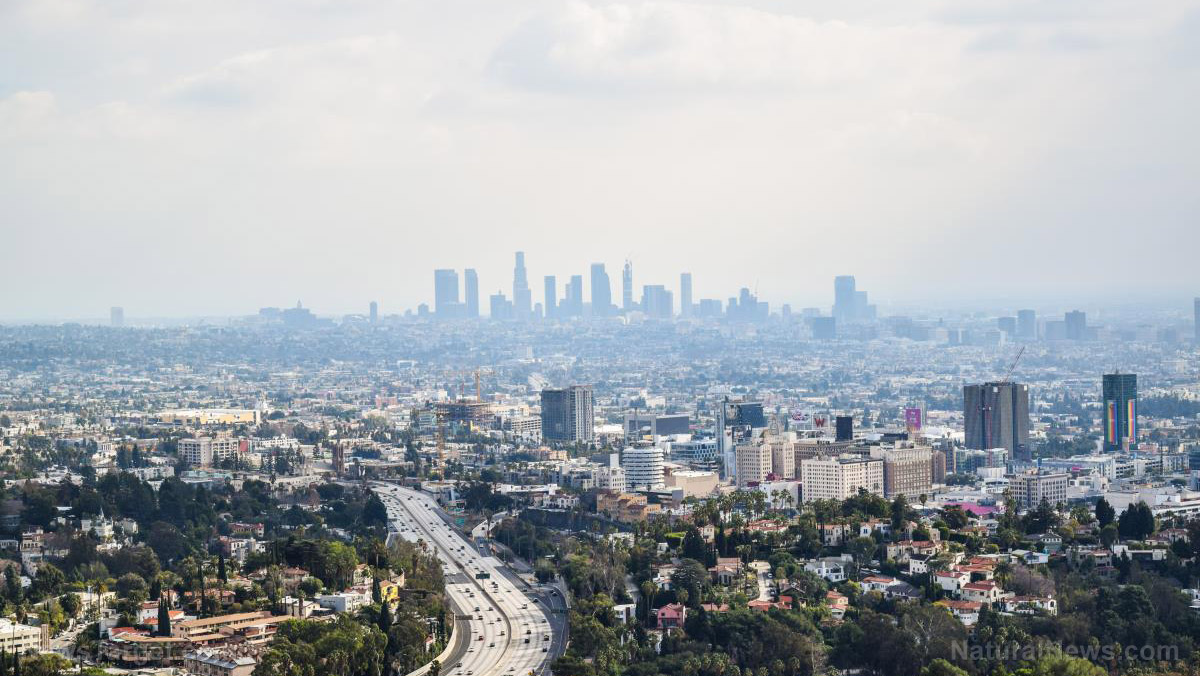California’s “Megadrought” is causing tap water to taste like dirt
07/02/2021 / By Divina Ramirez

California has entered another drought, one that experts think is more severe than its last one. Worse, the heat is so severe that it’s making tap water in some places, including Sacramento, taste like dirt.
Last month, the City of Sacramento issued a statement saying it has received complaints from residents about the taste of their tap water. Officials said blue-green algae, which produce toxins linked to diseases in animals and humans, are what’s causing some residents’ tap water to take on an earth-like taste and smell.
Despite their name, blue-green algae are not algae but cyanobacteria. When conditions are right, they grow quickly and form what’s known as blooms. They also produce a relatively non-toxic taste and odor compounds, such as geosmin. Geosmin is a bacterial product that makes soil smell the way it does. It’s also responsible for the earthy taste and smell of beetroot peels.
Geosmin is completely harmless but it makes water unpleasant to drink, a huge annoyance as people drink more water to beat the extreme heat.
Most of the drinking water in Sacramento comes from rivers. More organic material is present in the water during hot summer months. Water treatment plants can remove algae from the water but not geosmin. Unfortunately, humans are sensitive to the compound and can detect even low concentrations of it.
Sacramento officials said there’s nothing they can do to improve the taste and smell of the tap water in the city, suggesting that residents just add lemon to their tap water or chill it before drinking.
Geosmin “outbreaks” don’t occur until late summer. The compound showed up quite early this year because of the drought. Scientists aren’t sure whether more algae and geosmin will form in the Sacramento rivers. But because they are continuing to dry up, geosmin concentrations in tap water are likely to rise as a result.
California is suffering a “megadrought”
Droughts are common occurrences in California, which is why some researchers believe the state is really over two decades into a “megadrought.” (Related: Drought could force California power plant to shut down at hottest time of the year.)
According to Park Williams, a climate expert and associate professor at the University of California, Los Angeles (UCLA), the drought may be attributed to rising global temperatures. This means that Californians have not seen the worst of it.
Williams led a study published last year in Science in which he and his colleagues looked at the ring records of thousands of trees across western North America to reconstruct soil moisture over the last 1,200 years.
Their findings indicated that 2000 to 2018 was the second-driest period in that region, which was only eclipsed by a megadrought in the late 1500s.
Other scientists agree that warming temperatures do seem to be making recent droughts worse. However, many remain skeptical, saying that while the Colorado Basin is facing megadrought conditions, the same can’t be said for California just yet.
Summers are usually very dry in California. But that hasn’t been a problem because water supplies are usually replenished in the winter and spring by snowmelt and rain, respectively. However, experts find that wet periods are becoming more sporadic and intense, while the dry periods in between are becoming longer, drier and more severe in recent years.
CaliforniaCollapse.news has more articles with updates on the heatewave behind California’s megadrought.
Sources include:
Tagged Under: algal blooms, blue-green algae, California, California Drought, California megadrought, chaos, disaster, Drought, drought emergency, environment, extreme weather, geosmin, Megadrought, water, water supply, weather
RECENT NEWS & ARTICLES
COPYRIGHT © 2017 CALIFORNIACOLLAPSE.NEWS
All content posted on this site is protected under Free Speech. CaliforniaCollapse.news is not responsible for content written by contributing authors. The information on this site is provided for educational and entertainment purposes only. It is not intended as a substitute for professional advice of any kind. CaliforniaCollapse.news assumes no responsibility for the use or misuse of this material. All trademarks, registered trademarks and service marks mentioned on this site are the property of their respective owners.




















